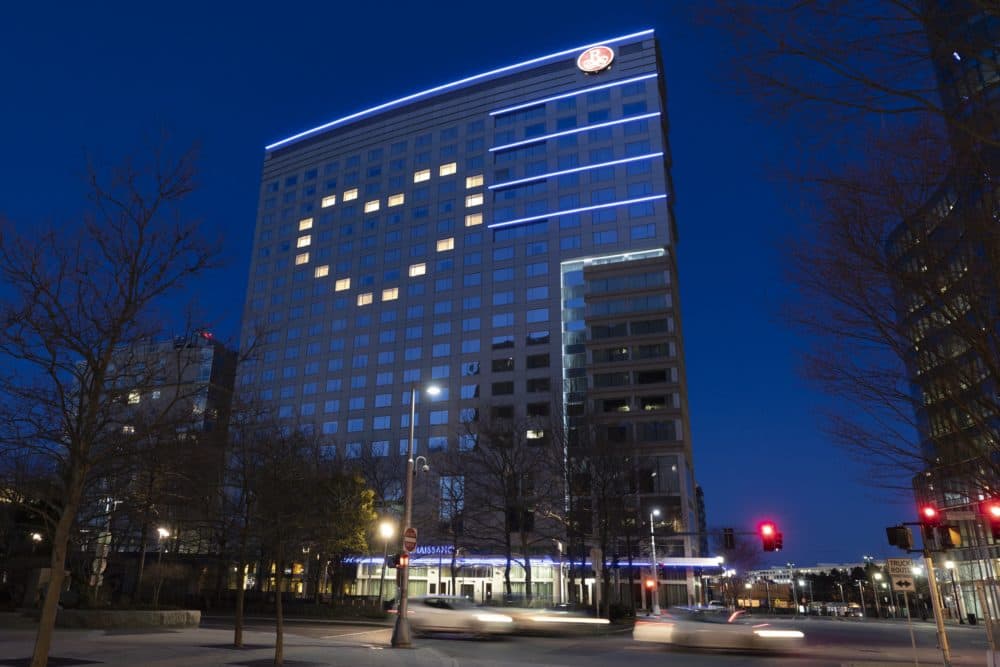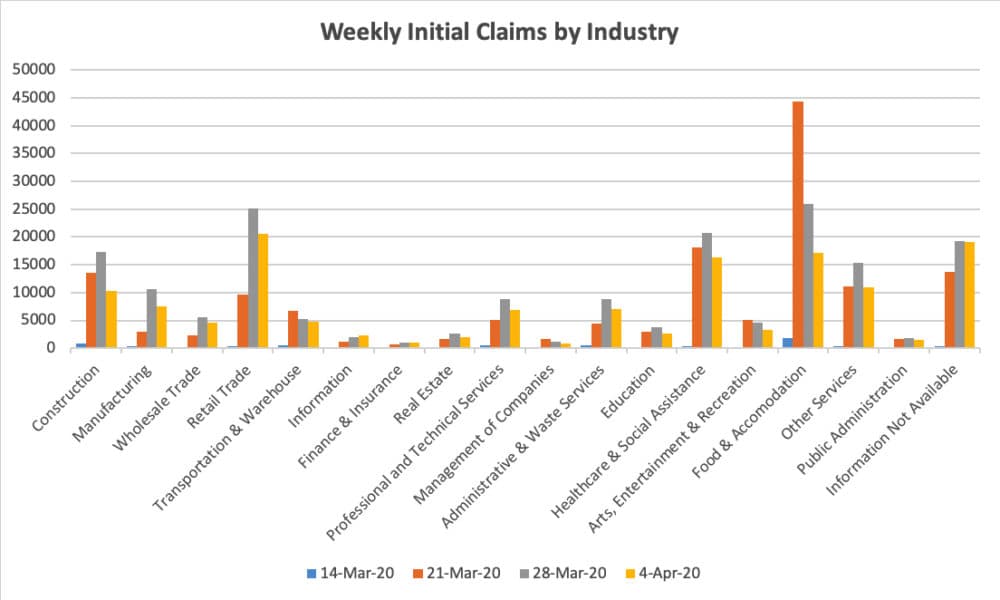Advertisement
New Data Show A 'Devastating' Month For Greater Boston Hotels

A month after travel restrictions, social-distancing, cancelled conventions, and stay-at-home advisories went into effect, new data show just how much hotel business has plummeted in Greater Boston and the surrounding counties.
During the first week of April 2019, the occupancy rate for some 39,000 hotel rooms in the region that includes Greater Boston was nearly 77.6%, according to data compiled by Smith Travel Research and provided to WBUR by the Greater Boston Convention & Visitors Bureau (GBCVB). By contrast, during the first week of April 2020, the occupancy rate was 11.4%.
"At this stage, we can predict that the tourism industry will be somewhat decimated for quite some time now," said Martha Sheridan, president and CEO of the GBCVB.
Those that remain open are making a fraction of what they normally would. In early April 2019, hotel rooms generated an average of $167.93 per night. During the same period this year, that rate was down to $13.77 per night — a 92% decrease.
These more recent statistics are all the more stark when you consider that the sample only includes hotels that are open and operating. As of Monday, GBCVB estimates that about 11,000 hotel rooms in the Boston-Cambridge area were "offline," out of the roughly 25,000 normally available. Moreover, of the 75 or so hotels in those cities, GBCVB reports that at least half are currently closed.
As the shutdown drags on, it will be "devastating" for hotels, restaurants, and other businesses that rely on tourists, Sheridan said. "I'm thinking of all the hospitality employees that have been furloughed and laid off," she said. "There are literally thousands and thousands of them. "

Between March 9 and April 4, more than 89,300 people working in Massachusetts' food and lodging sectors filed claims for unemployment, according to data from the Executive Office of Labor and Workforce Development.
In addition to the impact for the many people working in the industry, the sudden and prolonged drop in hotel business means less tax revenue going to state and local governments. For instance, visitors to Boston pay a 6.5% tax to the city, plus a 5.7% tax to the Commonwealth, and another 2.75% tax that goes toward convention center funding.
Back in early February, weeks before the coronavirus outbreak had reached pandemic status, tourism promoters remained optimistic that the effect on the industry would be minimal. After all, the busy seasons were still months away. But now, many people are wrestling with decision of whether to venture outside for groceries, much less take a vacation. And there is no consensus among epidemiologists, politicians and policymakers on when appropriate time to "open up" the economy would be.
Advertisement
"We don't want the summer to pass us by without some sort of a rebound," Sheridan said. Still, she added, even if businesses begin to recover by then, many of them may not be able to hang on that long.
"This is an industry ... that runs on tight margins," she said. "I worry that some of these businesses may never be back with us."
